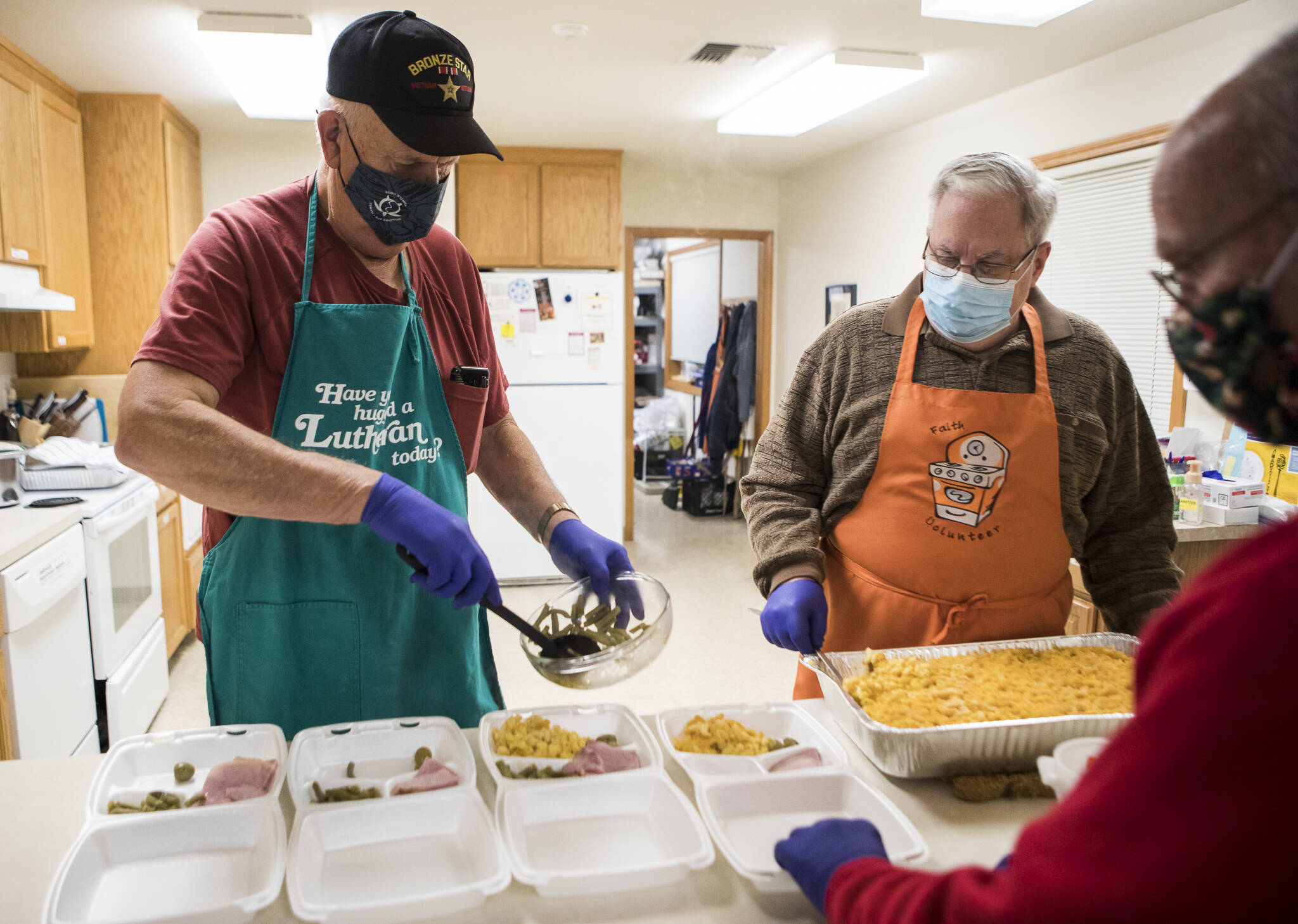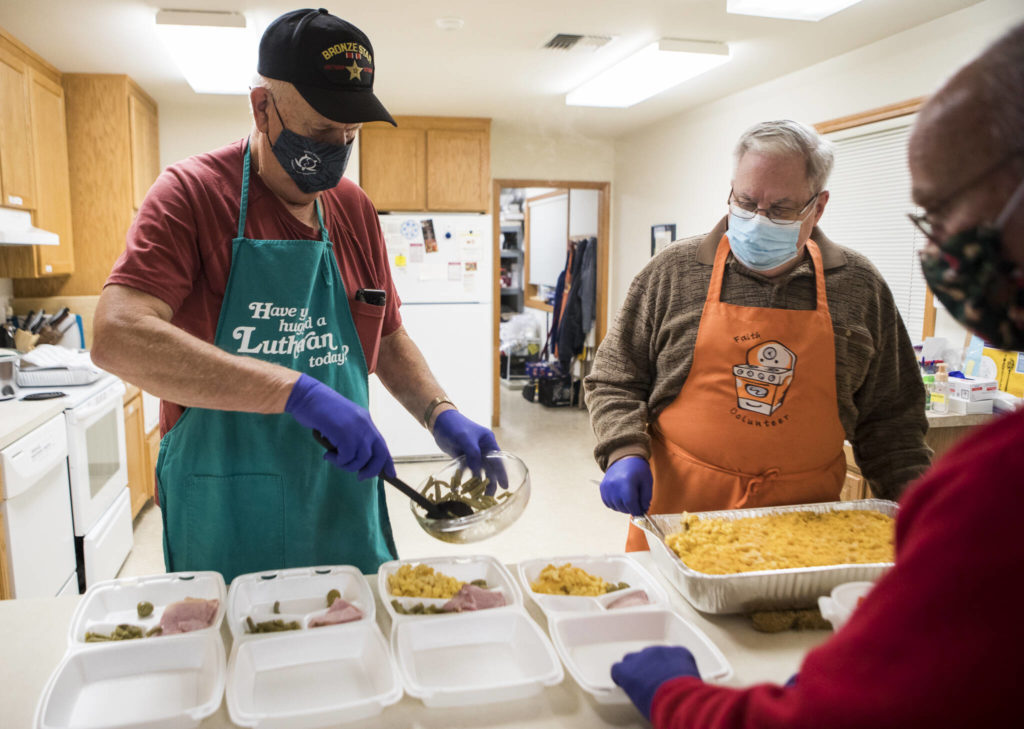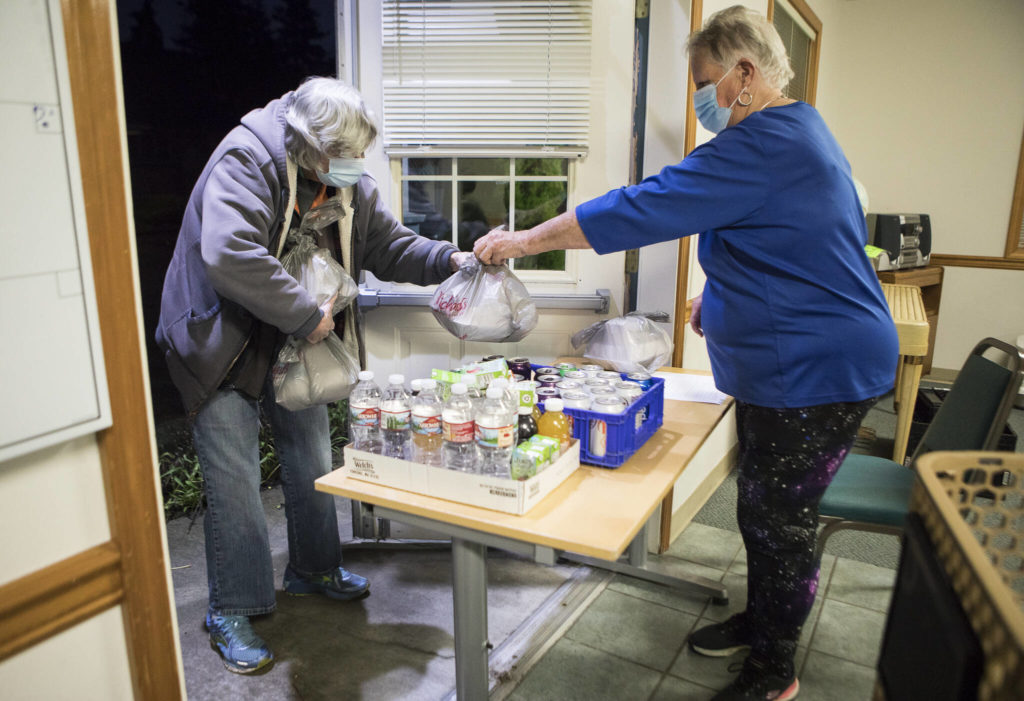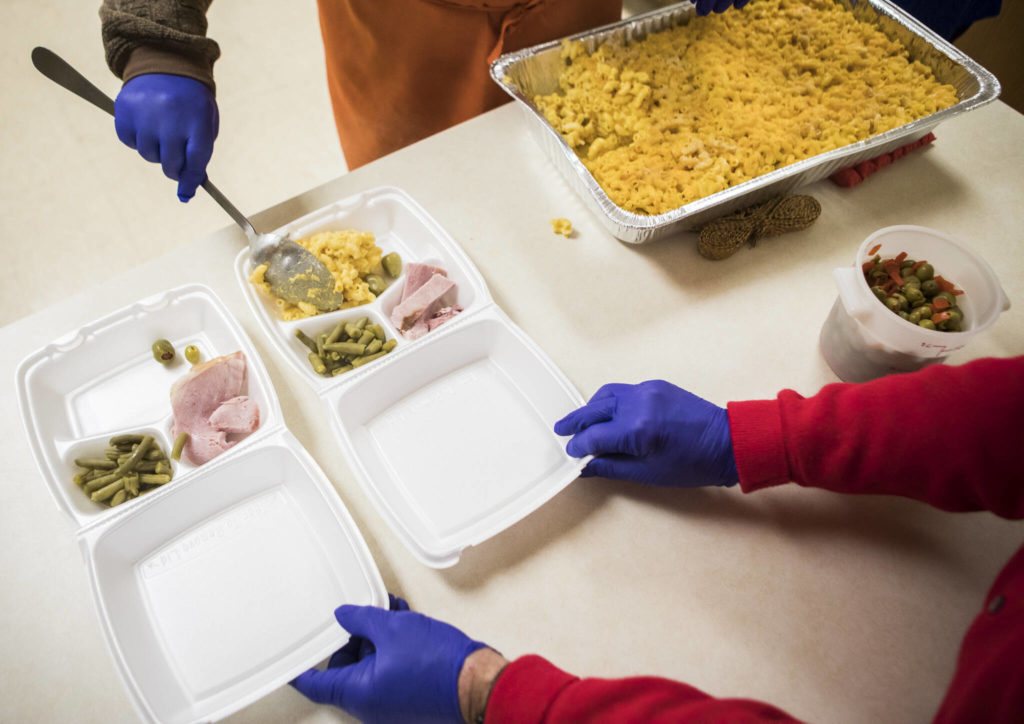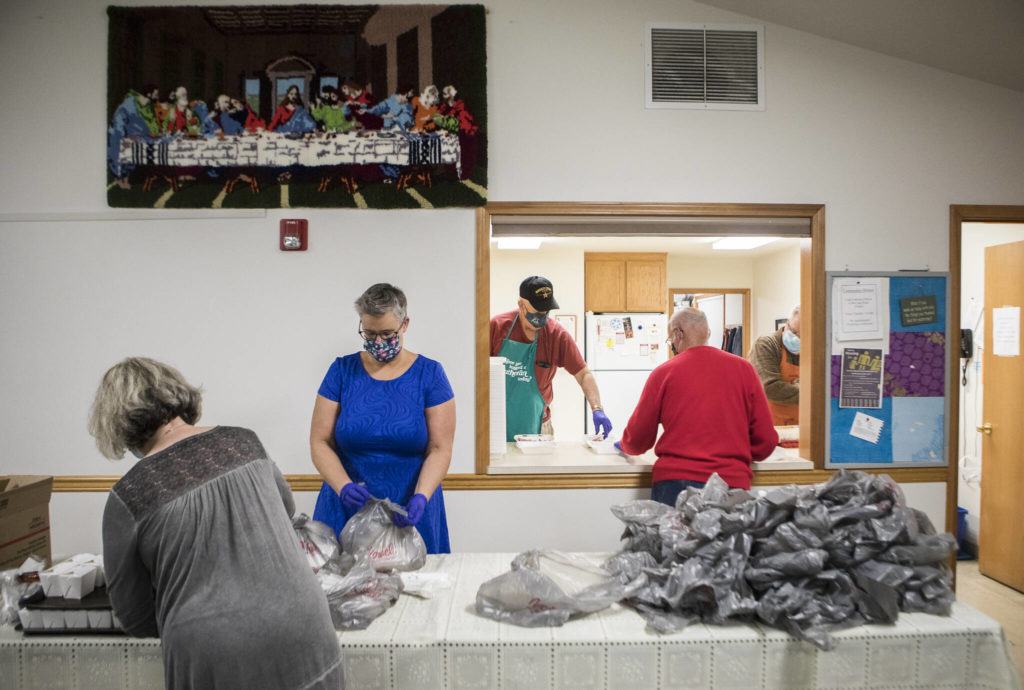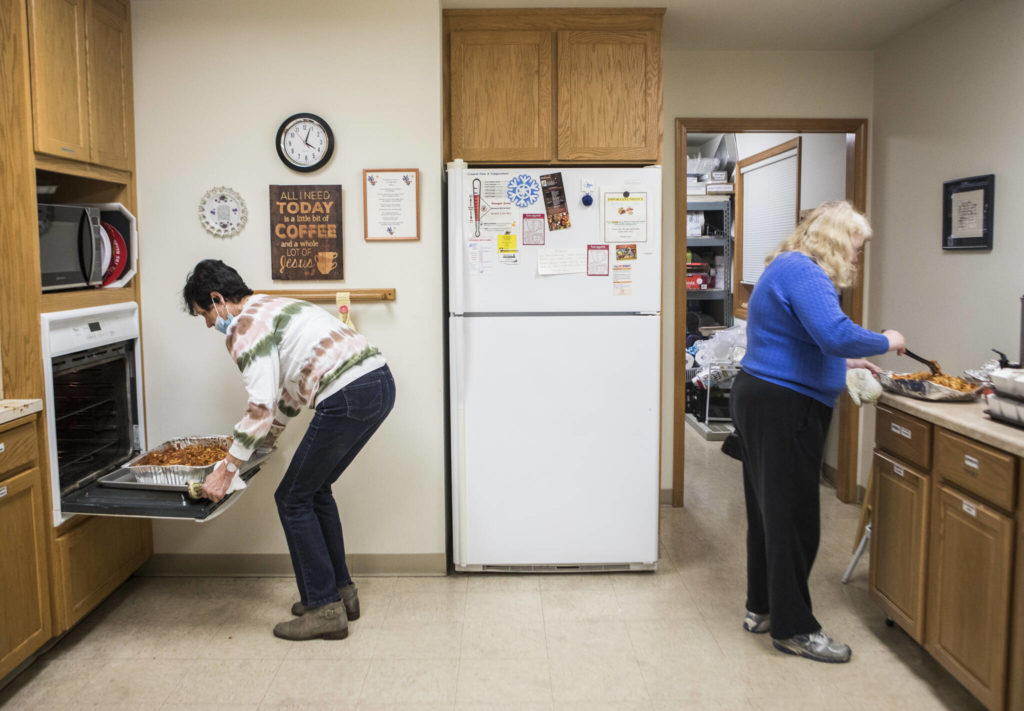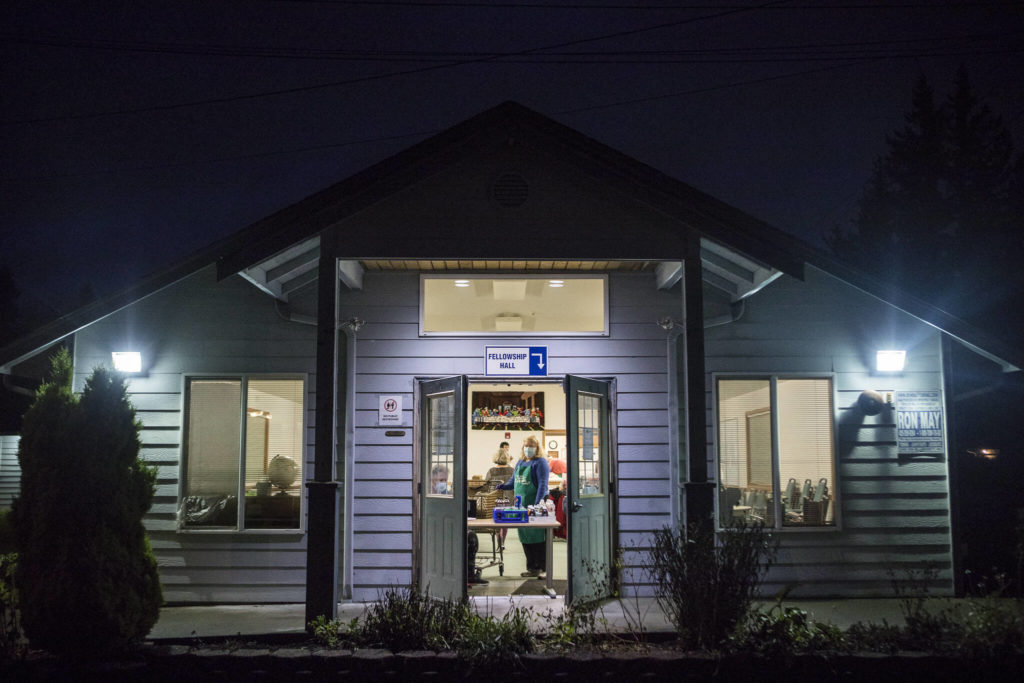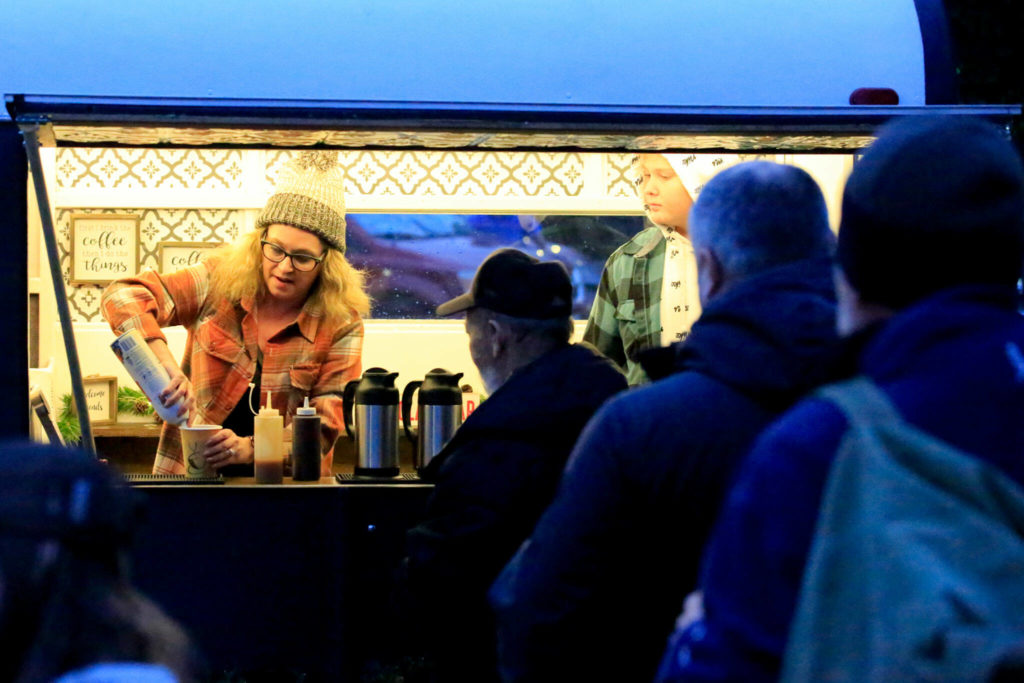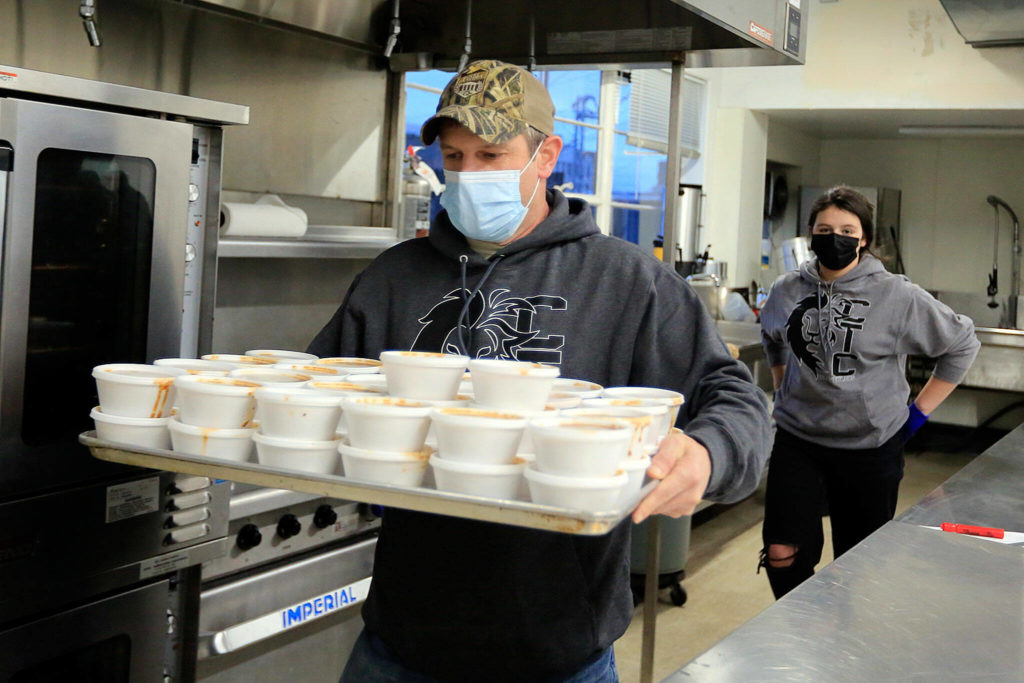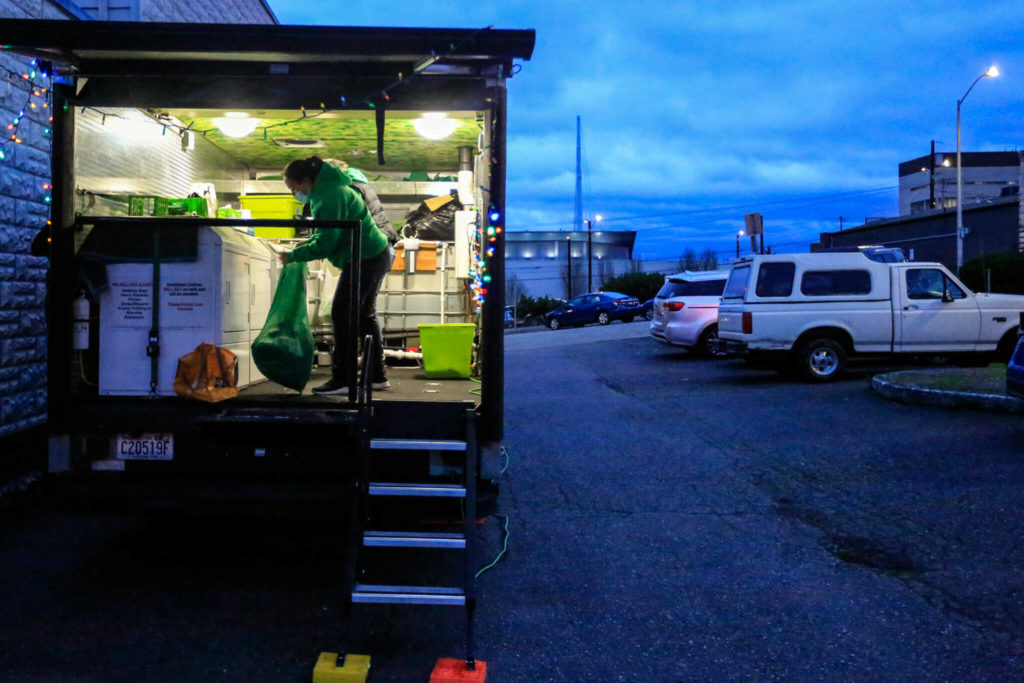EVERETT — Every day across the city, hundreds of hot meals are served to people who may not otherwise eat.
For several years, the Everett Hot Meals Coalition has coordinated and supported previously independent groups working to feed people in the city. It is comprised of 12 agencies, most of which are churches.
The coalition facilitates communication among the different groups, supplements their supplies with bulk purchases, and manages a shared refrigeration and storage space.
It culminates in an average of between 1,500 and 1,600 meals each week.
“Everybody talks about shelter, and obviously that’s a huge need, but an equal need is food,” said coalition director Jack Harris.
The coalition officially formed several years ago out of the city’s Streets Initiative. It gathered together groups giving food and other assistance with business leaders and neighbors to develop best practices to reduce impacts such as traffic and trash.
“It started as a kind of rocky, contentious problem, but I am just so happy with the solution, that we have these organizations committed to getting people food,” said Julie Willie, Everett’s community development director. “Both for our unsheltered residents and those living with food insecurity, our food programs provide an opportunity to have their basic food needs met and for community.”
Grants provide the primary funding, including $50,000 from the city for food, and a $33,200 annual contract for Harris as the director.
“I’m thankful for the many community partners who have come together to ensure those with food insecurity are provided not only a meal but support,” Everett Mayor Cassie Franklin said.
Coalition members include churches Central Lutheran, Everett First Church of the Nazarene, Everett United Church of Christ, First Baptist, First Lutheran, First Presbyterian, and Vision.
Other members serve specific groups, such as youths at Cocoon House, and children and women at Esther’s Place, or focus on an area such as Madres de Casino Road in south Everett.
Their shared criteria: be in Everett, and offer the food for free and to anyone who shows up for it.
Meals vary by time and day. There is less service on weekends and more options Monday through Friday.
The calendar gets updated as needed, is published on the city’s website, and shared by the Everett Fire Department.
Coalition manager Roxana Boroujerdi helped lead food bank and meal services of Faith Lutheran Church at 6708 Cady Road before the coalition was formed. People can have the misconception that the only people who live with food insecurity are the homeless, she said.
“But that’s not really a true reflection of the community,” Boroujerdi said.
In her time, she’s seen families and seniors come. Some have homes, some live in cars, some live on the streets.
“The Bible teaches us to love our neighbors and help people in need,” Boroujerdi said.
Cheryl Roth helps organize First Baptist Church’s efforts at 1616 Pacific Ave, which is closer to downtown Everett and the social services offered there, as well as the Everett Gospel Mission and Snohomish County Jail, which has acted as a de facto behavioral and mental health treatment facility at times.
“It’s a basic need,” Roth said of the coalition’s work.
Before last year, people gathered to eat the meals in the groups’ locations. It helped ensure trash was thrown away and built a sense of community, Roth said.
During the pandemic, meals were packed to-go to comply with public health guidelines and reduce risk of infection to volunteers. But it has stripped the communal element of gathering people together to eat, Boroujerdi said.
“If you don’t have anybody to share your feelings, your fears, it’s tough,” she said.
Expenses grew during the pandemic as well. Instead of cups for water, people now receive water bottles. Instead of food on plates, everything is packed and bagged.
People who can connect the guests to social services, such as Everett’s social worker and police officer unit, visit many of the meals.
With most of the coalition members in north Everett, Boroujerdi said other groups and locations in south Everett would be helpful. Weekends and Mondays have gaps in meal service, too.
The organization had about $95,000 in reimbursable grant funding for this year. That means the agency spends the money, collects receipts and then submits them for payment later.
With just a few weeks left, the coalition had about $5,000 left.
Each bulk purchase every two weeks costs around $3,000, Harris said.
“We’re not rich in money,” he said. “We’re more rich in people.”
Given social distancing rules and concerns about coronavirus variants, volunteers aren’t needed at this time.
Much of the coalition’s money doesn’t go to overhead costs like office space or computers. Instead it largely buys food, plus a small expense to rent storage space.
Donations of food can help, Harris said, but money goes further through the coalition’s bulk purchases and shared storage system.
If people want to donate food, items that don’t have to be cooked — granola, jerky, and nuts — are more useful than canned foods.
“When you have a budget of about $75,000 and you hand out 75,000 meals, it’s a big struggle,” Boroujerdi said. “The need is not going away.”
Everett Hot Meals Coalition operates under the financial arm of Faith Lutheran Church. Donations can be made via the Faith Lutheran Church site with “Everett Hot Meals Coalition” in the memo field or by check with “Everett Hot Meals Coalition in the subject line and mailed to Faith Lutheran Church, 6708 Cady Road, Everett, WA 98203.
Ben Watanabe: bwatanabe@heraldnet.com;
Talk to us
> Give us your news tips.
> Send us a letter to the editor.
> More Herald contact information.
